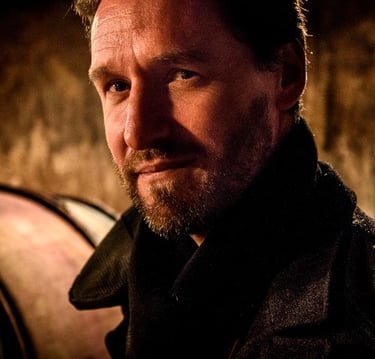
Subscribe to our newsletter
Jeremy Cukierman MW
Embracing the Ever-Changing World of Wine
6/18/20233 min read


A Conversation with the Madame Bollinger Medal Winner 2017
How did your passion for wine begin, and what inspired you to pursue the Master of Wine qualification?
Jeremy Cukierman MW: My passion for wine truly blossomed when I had the incredible opportunity to meet some of the best wine producers in the Northern Rhône, particularly at Domaine Jean-Paul Jamet. It was there that I experienced my first wine crush, a Côte-Rôtie that left a lasting impression. Building a friendship with Jean-Paul Jamet further deepened my connection to the world of wine. After successfully completing my WSET Diploma, I felt compelled to take on the challenge of becoming a Master of Wine. It was a natural progression in my journey, taking things step by step, and continuously expanding my knowledge and expertise.
As a Master of Wine, what key factors are you looking for when assessing a wine for quality and potential longevity?
Jeremy Cukierman MW: When evaluating a wine, one of the primary indicators of quality for me is its length. A wine with exceptional persistence on the palate is typically a sign of high quality. In terms of potential longevity, I pay close attention to the balance between concentration, acidity, and bitterness. Wines that possess a great acidity and intense, yet integrated bitterness have the potential for long-term aging when accompanied by depth and complexity.
With the ever-evolving wine market, what regions or grape varieties do you believe are currently underrated and hold great potential for future appreciation?
Jeremy Cukierman MW: There are numerous regions and grape varieties that deserve recognition and are poised for appreciation in the future. One such region is Beaujolais, with its granitic soils and temperate climate. It is attracting increasing interest from investors outside the region. In the past, the Crus of Beaujolais commanded prices similar to those of Burgundy's premier crus before World War Another region to watch is Muscadet, which is just beginning to shine. With its remarkable terroir and the Melon de Bourgogne grape, it has the potential to produce complex and captivating wines. Italy, with its diverse array of indigenous grapes and undervalued terroirs, offers tremendous potential for future appreciation. Alto Piemonte is making a comeback, showcasing its unique soils, and Campania is a region that is yet to receive the recognition it deserves. Additionally, the still wines of Champagne (Coteaux Champenois) are gaining attention, and Patagonia is emerging as a region with incredible promise. The wine world is full of surprises, and who knows, perhaps Brittany or Scandinavia will produce exceptional wines in the future.
In light of climate change, what are some of the challenges facing the wine industry, and how do you believe winemakers and investors can adapt to these changes?
Jeremy Cukierman MW: Climate change presents a multitude of challenges for the wine industry, encompassing the entire process from vine to glass. Adaptation is crucial, and this includes viticulture practices that respond to the new climatic reality. Soil management, canopy management, and water management are just a few aspects that need to evolve rapidly. In the winery, winemaking techniques must also adapt to ensure the production of fresh and delicate wines. Addressing transportation and packaging is essential to reduce the carbon footprint of the industry. Moreover, it is important to recognize the evolving taste preferences of consumers, who increasingly seek fresh wines. The training of future wine professionals is pivotal. We must equip them with the ability to think and act differently, to be responsible and adaptable.
The wine industry has a unique opportunity to lead by example, not only in adapting to the challenges of climate change but also in mitigating greenhouse gas emissions.
It is imperative that we consider not just what needs to be done but also the consequences of our actions. Fortunately, many winemakers and investors have already embraced these challenges and are actively adapting. The wine industry can be a shining example for others to follow.
As we conclude the conversation with Jeremy Cukierman MW, his insights remind us of the ever-changing nature of the wine world and the need for continuous adaptation. Through his experiences and expertise, he inspires us to explore new regions, grape varieties and approaches while being mindful of the environmental challenges we face. Jeremy's passion and dedication exemplify the spirit of a true wine professional, and his contributions to the world of wine continue to shape and elevate the industry.
Join our newsletter today and stay informed about the latest trends and insights in the world of fine wine investment. Don't miss out on our upcoming feature on "The Rise of Biodynamic and Organic Wines," where we delve into the growing trend and explore the unique characteristics and benefits they offer for sustainable wine investment. Subscribe now and be the first to receive this exciting edition!
